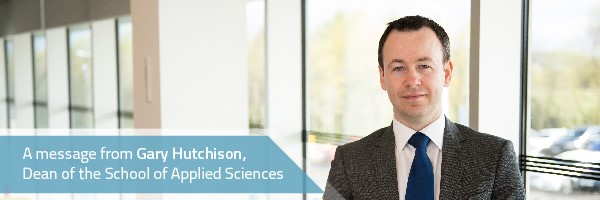
Dear Colleagues,
We are continuing to focus on our key employee engagement priorities and identify ways in which we help colleagues feel proud to work at Edinburgh Napier University.
Last month you heard from Sally Smith, Dean of the School of Computing about what we’re doing to improve the way we communicate. I’d now like to turn your attention to another of our key engagement priorities, workload.
Workload continues to be a challenge for many of us across the University, and as the lead for this working group, I’m very committed to helping make a difference, as is everyone else within the Senior Leadership Team – you’ve told us that this needs to be addressed and now I’d like to share the actions we’re putting in place to help improve work/life balance.
Our top three actions for workload are:
1. We will make the academic workload framework (AWF), and its use in practice, transparent whilst reflecting on the value and apportionment of the allocations:
This is key in managing workloads for academic staff, so we’ve taken a lot of time to consider how we can deliver a fair and open AWF/workload allocation modelling (WAM) system that delivers the University’s priorities.
For those of you that don’t know, WAM is the system we use to report academic workload and how we collect this information is guided by the academic workload framework (AWF).
Throughout November and on into December, we’re piloting a process in the School of Applied Sciences (SAS) where staff have been and will continue to receive interactive briefings and new guidance on WAM/AWF allocations, these will help improve understanding and clarity of the AWF with the aim of improving consistency in allocation which will allow staff the opportunity to build their own workload.
Our aim is to achieve standardisation and comparability across SAS, the output from this will provide a full School database of workload that we can share with all academic staff.
A review of the pilot is due to take place with all the Schools this month. Once complete and all Schools have agreed to commit to the same principles, we’ll look to roll this out as early as February next year. With the School of Computing already taking this approach, we have some great insights to learn from.
I’m confident that by doing this, we’ll provide much more confidence and trust in workloads being allocated appropriately and equitably.
2. We will ensure that, before we initiate any significant change, we will improve transparency and scrutiny with regards to estimated workload requirements and other consequences e.g. staffing, processes:
The clear message and action from this is that we should pause before we make any key changes within the University.
Our aim is therefore to implement a simple ‘impact and effect’ assessment that will help us to carefully consider the consequences of the change before they’re approved or implemented.
Included in the process will be key people from departments and Schools, where relevant, from across the University to ensure full inclusion and involvement before we move into delivery.
This will help to take workload into account for both Schools and Services which may not have always been fully considered in the past. Before we launch a new programme, make a change or embark on a new project, more time will be spent considering the impact on all departments, and our people, to ensure we get it right.
3. We will manage and co-ordinate requests to the Schools from Professional Services (and back from the Schools), avoiding multiple demands:
This is perhaps less obvious as an impact on workload, but it’s actually very significant when it comes to periods of peaks and troughs throughout the academic year.
The main action from this is to help alleviate the pressure and, building on the current key dates calendar, develop a cross-University calendar that provides awareness of times of pressure within each of the Schools and Departments to help manage requests for support, or for information, throughout the year.
This action will also be addressed in part by School Leadership enhancements and improved partnering between the Professional Services and the Schools. As a result, we will prevent duplication of effort and improve clarity on what colleagues require to support the delivery of Strategy 2020.
Steven Logie, Director of School Support Service and Academic Registrar, will lead on this to provide a more ‘joined-up’ approach across our Schools and departments.
I hope you’ve found this initial update on what we’re doing to help deliver a much more equitable and planned approach to workload useful. As always, I welcome any comments you may have on our actions and progress so far, if you do have any feedback please do get in touch with me directly.
Gary